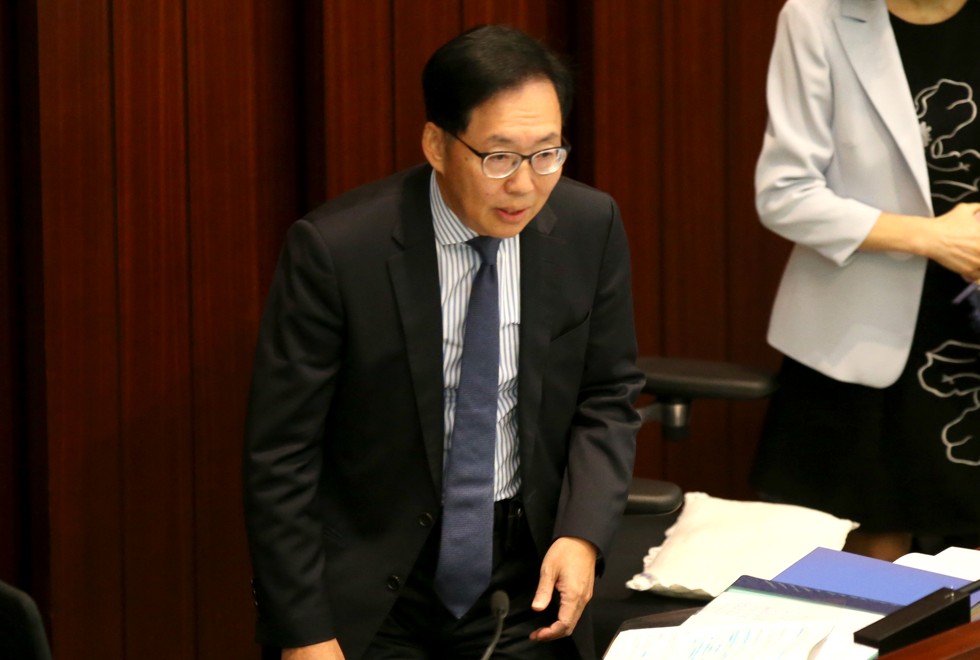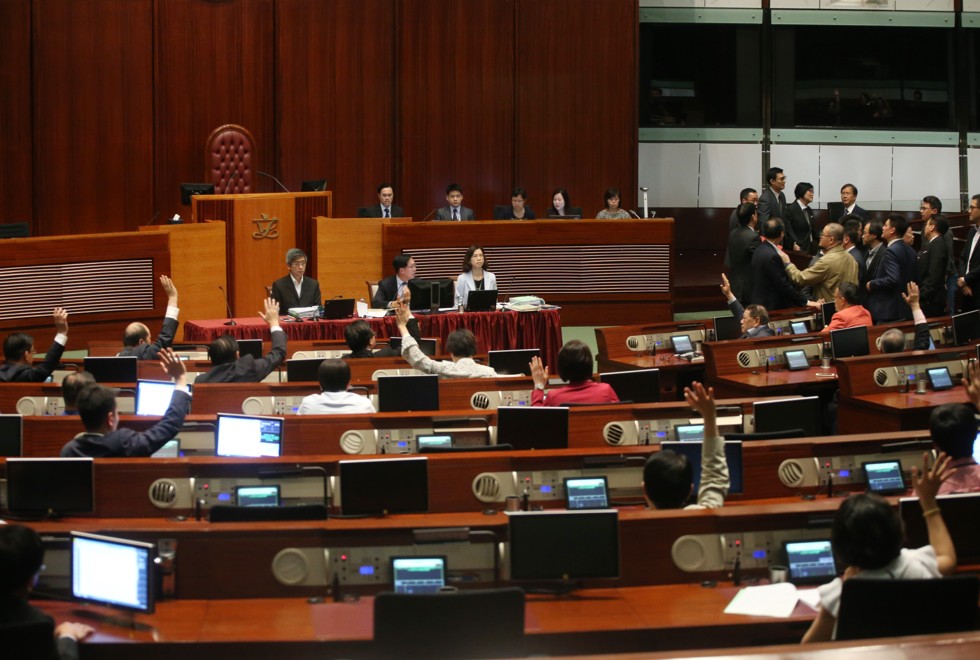
Hong Kong workers lose out as Finance Committee fails to vote on works projects, civil service pay
Final committee meeting before summer recess hit by pan-democratic protest about disqualification of four members
In the last half hour of the meeting, committee chairman Chan Kin-por managed to block pan-democrats’ filibustering to force through votes for preparatory work for three works projects – the Tuen Mun Hospital extension, a new hospital in Kai Tak and the redevelopment of Prince of Wales Hospital. Funding totalling HK$3.7 billion was approved.
Construction workers accused pan-democrats of pursuing “political gains” at the expense of workers’ livelihood, while a civil service unionist blamed the government for not placing their pay rise higher up on the agenda.
Among items that failed to make it to a vote were funding requests for the Tung Chung new town extension, development of a columbarium at Sandy Ridge Cemetery in Lowu, a new Central Kowloon highway and the reprovisioning of a street sleepers’ shelter in Yau Ma Tei.
Fernando Cheung Chiu-hung of the Labour Party said the works projects were not urgent.
Thomas Tse Che-wah, a spokesman for the Hong Kong Construction Alliance – a body representing 16 industry associations – criticised pan-democrats for blocking the projects.
“Infrastructure projects and welfare facilities are very much related to people’s livelihood,” he said.
Infrastructure projects and welfare facilities are very much related to people’s livelihood
The alliance also warned that the slow progress in gaining Finance Committee funding approval would reduce government expenditure on capital works a few years from now, which would in turn slow down long-term social and economic development and affect livelihood.
There are more than 300,000 people including workers, professionals and related personnel in the construction industry, accounting for about 10 per cent of the total labour force, according to the government.
Hong Kong Civil Servants General Union chief executive Leung Chau-ting said the government pay rise could have been passed if it was higher up the Finance Committee agenda.
“Although the pay rise will be backdated to April when it is approved later, some lower-level government workers need the extra money earlier to pay for education fees or buy new books for their children for the new school year,” Leung said.
“It will also hit those working in government-subvented organisations like the Hospital Authority, welfare groups or universities, whose pay rise is linked to the civil service increase.”



